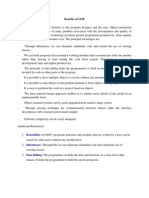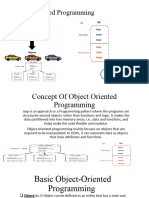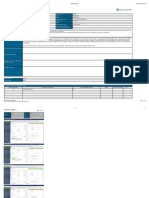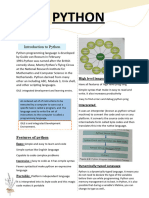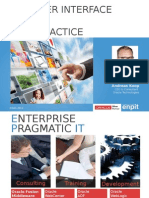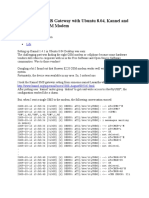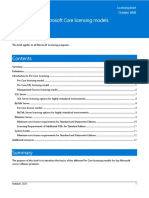0% found this document useful (0 votes)
44 views10 pagesBenefits of Object Oriented Programming
Object Oriented Programming (OOP) is a programming paradigm that utilizes objects and classes to design applications, emphasizing major principles like Inheritance, Polymorphism, Abstraction, and Encapsulation. Key benefits of OOP include modularity for better code organization, reusability to reduce redundancy, and enhanced security through encapsulation. Overall, OOP facilitates easier maintenance, adaptation to changes, and effective real-world data modeling.
Uploaded by
calvinmaponde23Copyright
© © All Rights Reserved
We take content rights seriously. If you suspect this is your content, claim it here.
Available Formats
Download as PPTX, PDF, TXT or read online on Scribd
0% found this document useful (0 votes)
44 views10 pagesBenefits of Object Oriented Programming
Object Oriented Programming (OOP) is a programming paradigm that utilizes objects and classes to design applications, emphasizing major principles like Inheritance, Polymorphism, Abstraction, and Encapsulation. Key benefits of OOP include modularity for better code organization, reusability to reduce redundancy, and enhanced security through encapsulation. Overall, OOP facilitates easier maintenance, adaptation to changes, and effective real-world data modeling.
Uploaded by
calvinmaponde23Copyright
© © All Rights Reserved
We take content rights seriously. If you suspect this is your content, claim it here.
Available Formats
Download as PPTX, PDF, TXT or read online on Scribd
/ 10



























